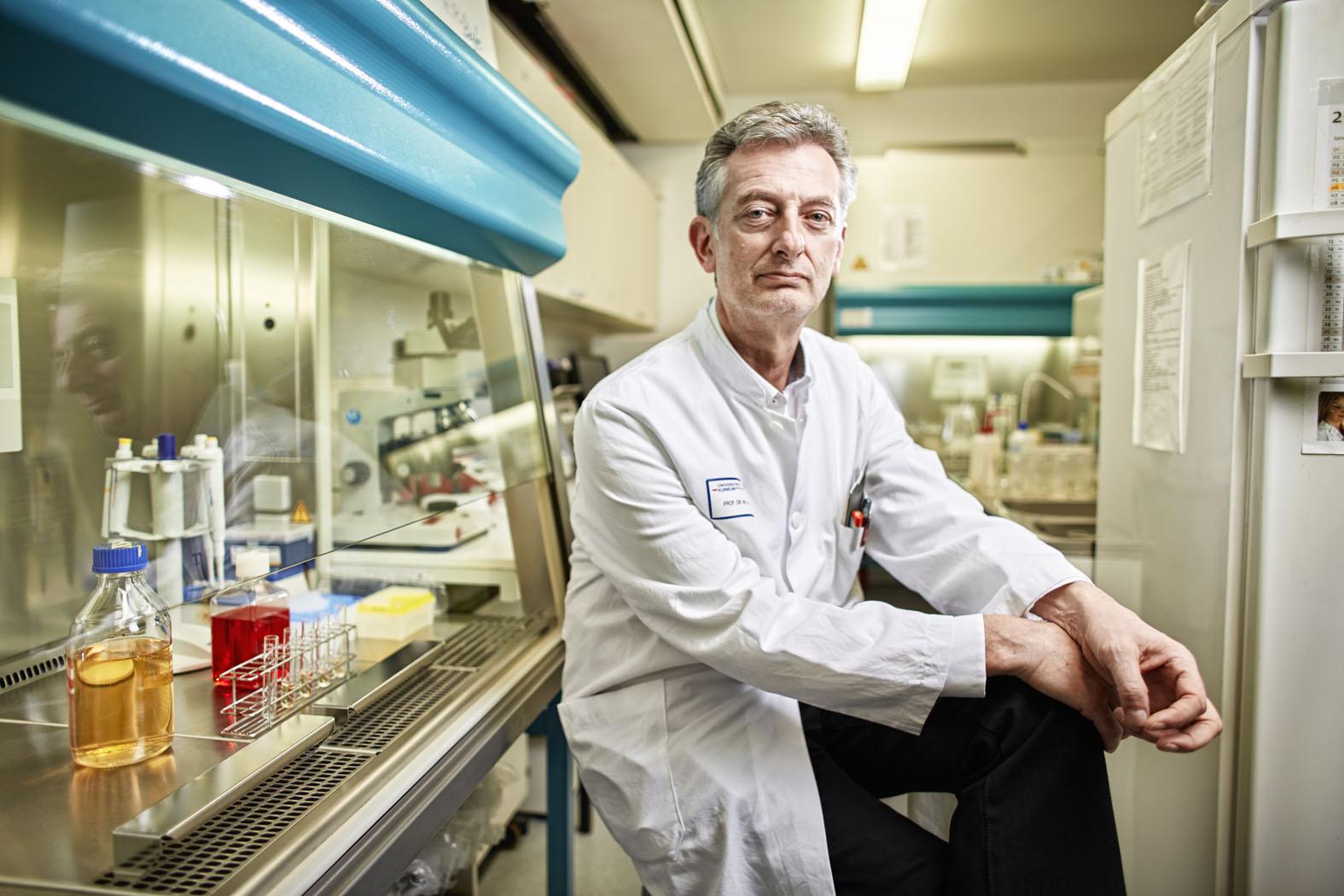How Long Covid restricts those affected
EPILOC study led by the University Medical Center Freiburg has examined more than 1,500 people formerly infected with coronavirus and identified long-term consequences

Chronic fatigue and exercise intolerance, cognitive complaints and a significant reduction in the ability to work and quality of life: these are the findings of a large-scale, long-term study in Baden-Württemberg on suffering after a coronavirus infection. For EPILOC (Epidemiology of Long Covid), researchers at the university hospitals in Freiburg, Heidelberg, Tübingen and Ulm examined more than 1,500 formerly infected people and found that Two thirds of patients suffering from post-Covid syndrome have barely recovered in the second year of their illness. Despite worsened functional parameters, laboratory tests show almost no pathological findings. The study results were published on January 23, 2025 in the renowned journal PLOS Medicine.
Two years after infection with SARS-CoV-2, many of those affected continue to have significant, lasting symptoms. These include chronic tiredness, also known as fatigue, and rapid exhaustion, memory problems and concentration disorders as well as shortness of breath and chest pain. Inner restlessness, depression and sleep disorders are also common. This is shown by the results of the Baden-Württemberg study Epidemiology of Long Covid (EPILOC) led by the University Medical Center Freiburg, for which more than 1,500 formerly infected people aged 18 to 65 were examined in the post-Covid outpatient clinics of the university hospitals in the state.
"It is shocking how many formerly infected people still have symptoms and limitations after two years," says study leader Prof. Dr. Winfried Kern from the Department of Internal Medicine II at the Freiburg University Medical Center. "Systematic longer follow-up and medical follow-up are necessary to identify factors for improvement or non-recovery of post Covid syndrome and relevant pathophysiological pathways more precisely. This is the only way to find and develop therapeutically effective intervention approaches."
The study showed that more than two-thirds of patients had barely recovered in the second year after their illness and that their health-related quality of life and ability to work remained limited. Compared to control subjects, functional parameters such as hand grip strength, maximum oxygen consumption during exercise and respiratory efficiency as well as results in neurocognitive tests were impaired.
Despite these objective signs of reduced physical performance and cognitive deficits, almost all routine clinical laboratory tests showed no pathological findings. The laboratory results did not show any SARS-CoV-2 persistence (i.e. a persistent viral infection) or reactivation of the Ebstein-Barr virus, adrenal insufficiency or blood clotting disorders, as often described in other studies. Due to the high number of participants and the consideration of possible confounding factors (such as obesity or smoking) when comparing different groups, such correlations could be more clearly excluded. This is another important result of the study, the authors emphasize. For a well-founded medical assessment, stress tests in the cardiopulmonary, muscular and nervous systems are required.
"The discrepancy between the functional test results, the subjective suffering of the patients and the many unremarkable routine laboratory parameters suggest that we need to look in a different direction for the pathophysiological causes," notes first author Dr. Raphael Peter from the Institute of Epidemiology and Medical Biometry at the University of Ulm. "In particular, neurometabolic and neuroinflammatory disorders, the role of skeletal muscle metabolism and dysfunctional respiration should be the focus of future research," says Dr. Peter.
The scientists are currently evaluating further data and analyzing the numerous biosamples from the EPILOC study using extended methodology. They hope to gain urgently needed insights to better help people with post-Covid.
The current phase of the EPILOC study was funded by the Baden-Württemberg Ministry of Science, Research and the Arts with 2.3 million euros. The approximately 1,500 participants come from a group of more than 11,000 adults from all over Baden-Württemberg who had already been interviewed about their symptoms six to twelve months after the index infection in an initial study in collaboration with the health authorities. At that time, one in four reported symptoms such as fatigue, memory problems and concentration disorders as well as shortness of breath and chest pain .
Original title of the publication: Persistent symptoms and clinical findings in adults with post-acute sequelae of COVID-19/post-COVID-19 syndrome in the second year after acute infection: A population-based, nested case-control study. PLoS Med 22(1): e1004511.
Link to the study:https://doi.org/10.1371/journal.pmed.1004511
Caption: Study director Prof. Winfried Kern finds it alarming how many formerly infected people still have symptoms and limitations after two years.
Image source: University Medical Center Freiburg
Back
Medical Center - University of Freiburg
Central Information
Phone: 0761 270-0
info@uniklinik-freiburg.de
For press inquiries:
Corporate Communications
Breisacher Straße 153
79110 Freiburg
Phone: 0761 270-84830
kommunikation@uniklinik-freiburg.de


